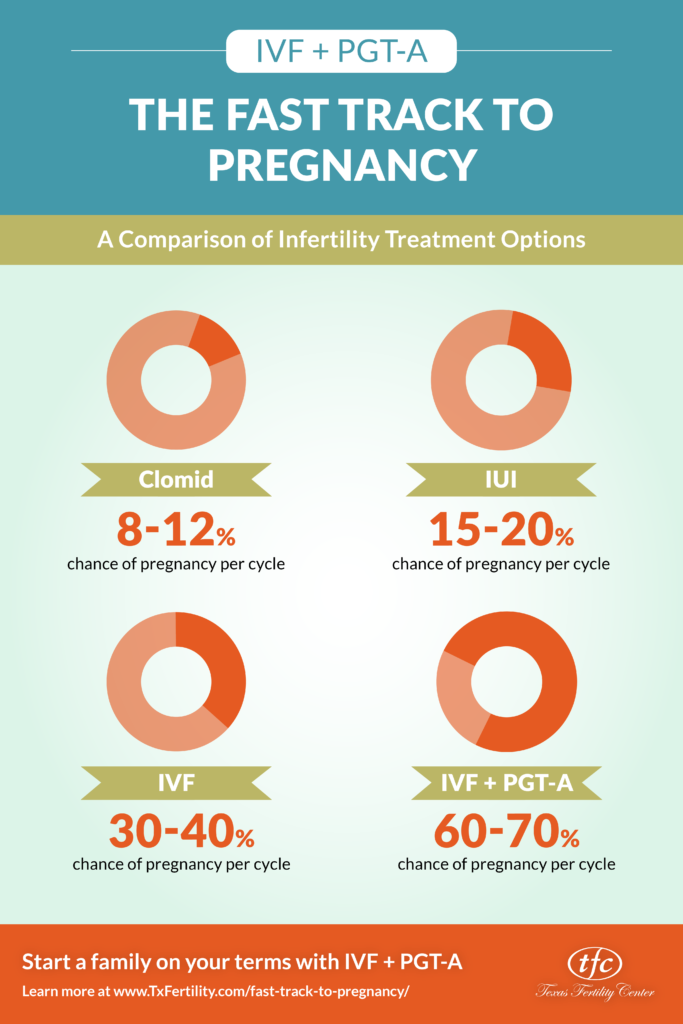
Embryo selection with PGT-A can increase your chance of IVF success
Our Austin IVF center offers embryo selection with PGT-A to help detect chromosomal abnormalities and improve pregnancy success rates. When you decide to use preimplantation genetic screening (PGT-A) with IVF, our embryologic team will use this information to help select the best embryo for transfer. Knowing which embryo(s) is/are most likely to develop into a healthy baby and pregnancy can increase your peace of mind.
Humans should have 22 pairs of chromosomes and one pair of sex chromosomes. During fertilization, the mother provides half the chromosomes and the father provides the other half. Problems can occur when an embryo has too many or too few chromosomes. This abnormality in chromosome number is known as aneuploidy. A rarer condition, called a translocation, can occur when part of a chromosome breaks off and reattaches to a different location on another chromosome. PGT-A can identify embryos that have these issues.
Who should consider embryo selection with PGT?
Although all IVF patients can benefit from embryo selection with PGT-A, certain patient groups are especially good candidates for this procedure.
- Women who have had recurrent miscarriages
- Women who have had repeated implantation failure with IVF
- Couples in which the female partner is 35 years of age or older
The team at our Austin IVF center can help you decide whether it makes sense to add PGT-A to your IVF cycle.
Understanding the process of embryo selection with PGT-A
Our Austin IVF center can only perform PGT-A in conjunction with an IVF cycle, which involves ovarian stimulation, egg retrieval, fertilization and embryo transfer. Between the steps of fertilization and embryo transfer, the Ovation® embryologists will perform an embryo biopsy so that the cells can be sent to the Ovation Genetics laboratory for the PGT-A procedure.
In order to perform PGT-A, the embryologist must gently remove a small sample of cells from each IVF embryo on Day 5, 6 or 7 after the egg retrieval. After the biopsy, our team will freeze the embryos and cells separately, and send the biopsy samples to a genetics laboratory. It takes approximately 7-10 days to receive the results of testing.
Your doctor will review these results to see which embryos have the correct number of chromosomes. This information can help him or her decide which embryo to transfer to your uterus. It also allows our doctors to transfer just one embryo at a time with greater confidence, which can reduce the risk of conceiving a multiple pregnancy.
Research has shown that embryo selection with PGT-A can significantly improve the chance of conceiving and delivering a healthy baby. For this reason, our team is proud to offer this exciting technology to our patients.
To learn more about the benefits of preimplantation genetic screening and how it can help you welcome a baby, contact our Austin IVF center.














